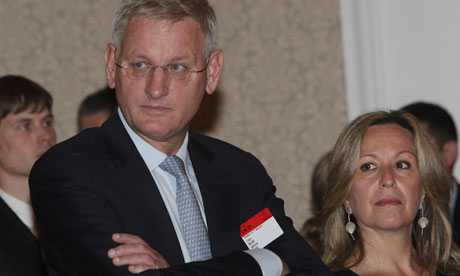 Stop the JNF Campaign: Media Release
Stop the JNF Campaign: Media Release
27 May 2011 – Prime Minister David Cameron has quietly terminated his status as an Honorary Patron of the controversial Jewish National Fund (JNF). His office confirmed he had “stepped down”. For many years leaders of all three main political parties became Honorary Patrons of the JNF by convention. According to Dick Pitt, a spokesperson for the Stop the JNF Campaign, “Cameron was the only leader of the three major parties remaining as a JNF Patron. This decline in political support for the JNF at the highest levels of the political tree may be a sign of the increasing awareness in official quarters that a robust defence of the activities of the JNF may not be sustainable.”
The news of Cameron’s move has reached Palestinians in refugee camps, people whose land is under the control of the JNF. Salah Ajarma in Bethlehem’s Aida Refugee Camp was “delighted to hear the news that the British Prime Minister has decided to withdraw his support for this sinister organisation involved in ethnic cleansing. My village, Ajjur, was taken by force from my family and given to the JNF who used money from JNF UK to plant the British Park on its ruins. For the Palestinians who were evicted from their villages and have been prevented from returning, Cameron’s withdrawal is another victory on the road to achieving justice and freedom for the Palestinians”.
The JNF chairman Samuel Hayek defends the work of the organisation saying, “for over 100 years we have had one mission: to settle and develop the Land of Israel” as pioneers of the “historic Zionist dream”. The registered charity claims their work, especially in the Negev region of Israel, deals with “the rising demographic challenges faced by Israel”. In recent months the JNF’s activities in the Negev have received extensive international media coverage, linking them to the demolition of Palestinian Bedouin villages and confiscation of the land of the village. Campaigners report that “even Israeli courts have criticised the JNF as an organisation that discriminates against non-Jews and there is mounting evidence of the JNF’s involvement in Israel’s programme to change the ethnic composition of areas inside 1948 Israel as well as in Jerusalem and the Occupied Territories. It is not acceptable that such an organisation is allowed to operate in the UK, much less to enjoy charity status”.
Michael Kalmanovitz, UK co-ordinator of the International Jewish Anti-Zionist Network, said “Cameron’s patronage of the JNF lent parliamentary credibility to a criminal organisation backed by a highly-equipped occupying army and masquerading as a ‘humanitarian charity’. Now parliamentarians who are ‘Friends of Israel’ must consider how much longer they can defend Israeli apartheid and worse.“
Pressure has been mounting on Cameron and the JNF. An Early Day Motion in the Westminster Parliament highlighted the Prime Minister’s status as honorary patron and claimed that “there is just cause to consider revocation of the JNF’s charitable status in the UK”. UK and international JNF fund-raising events increasingly face protests due, campaigners argue, to “a shift in public opinion on Israel generally”. In 2007, the American JNF application for consultative status on a key UN committee was rejected because delegates were unable to distinguish between the activities of the US Branch and those of the JNF in Israel whose activities the UN’s Committee on the Elimination of Racial Discrimination expressed concerns about.
The Stop the JNF Campaign has workshops planned in London on 4 June 2011 and protests against JNF fundraising activities will be organised throughout the coming year.
ENDS





 Kucuk will travel to British capital of London on Monday to attend events to celebrate the 60th anniversary of the foundation of the Turkish Cypriot Association.
Kucuk will travel to British capital of London on Monday to attend events to celebrate the 60th anniversary of the foundation of the Turkish Cypriot Association.